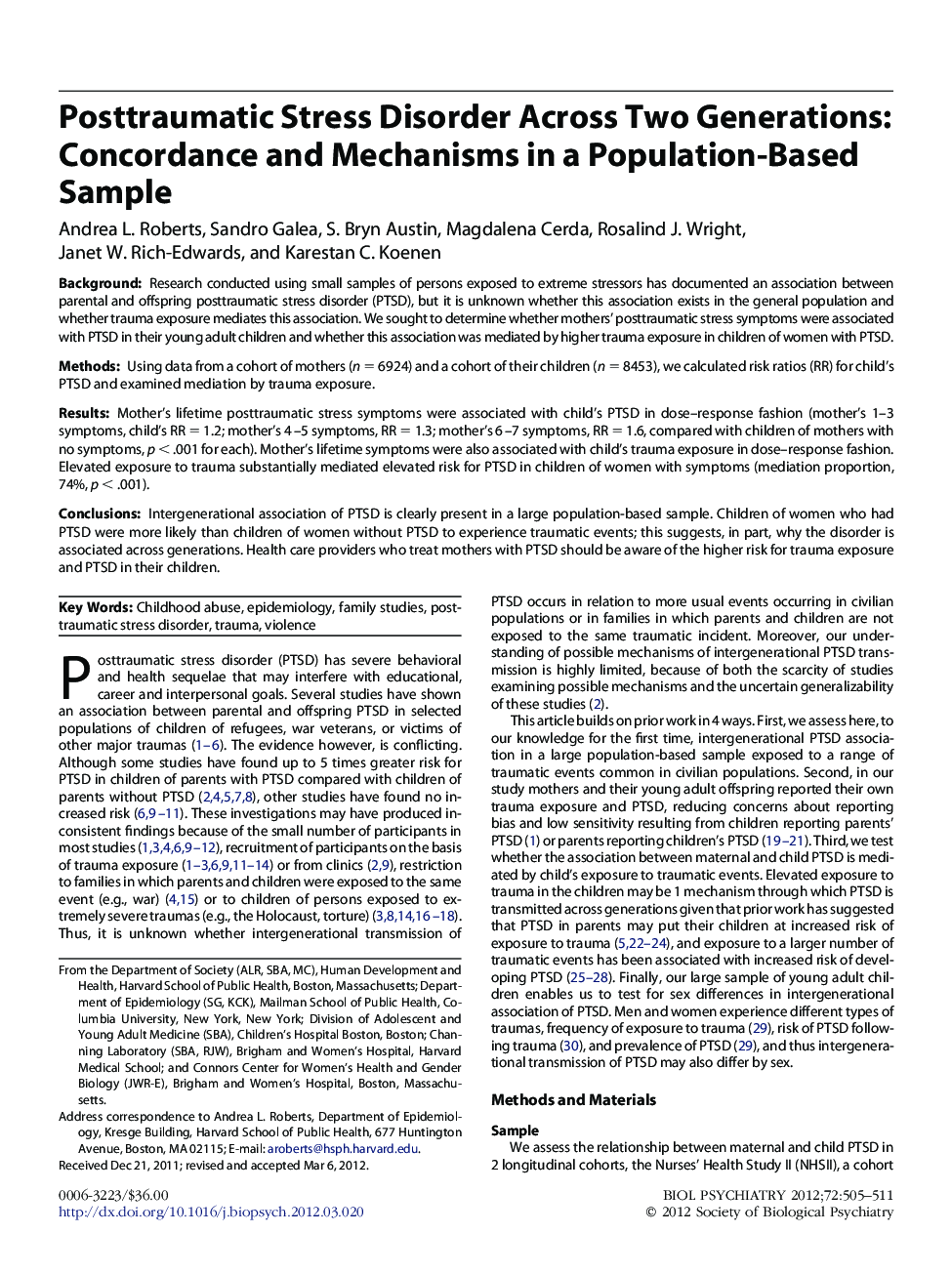| Article ID | Journal | Published Year | Pages | File Type |
|---|---|---|---|---|
| 6227776 | Biological Psychiatry | 2012 | 7 Pages |
BackgroundResearch conducted using small samples of persons exposed to extreme stressors has documented an association between parental and offspring posttraumatic stress disorder (PTSD), but it is unknown whether this association exists in the general population and whether trauma exposure mediates this association. We sought to determine whether mothers' posttraumatic stress symptoms were associated with PTSD in their young adult children and whether this association was mediated by higher trauma exposure in children of women with PTSD.MethodsUsing data from a cohort of mothers (n = 6924) and a cohort of their children (n = 8453), we calculated risk ratios (RR) for child's PTSD and examined mediation by trauma exposure.ResultsMother's lifetime posttraumatic stress symptoms were associated with child's PTSD in dose-response fashion (mother's 1-3 symptoms, child's RR = 1.2; mother's 4-5 symptoms, RR = 1.3; mother's 6-7 symptoms, RR = 1.6, compared with children of mothers with no symptoms, p < .001 for each). Mother's lifetime symptoms were also associated with child's trauma exposure in dose-response fashion. Elevated exposure to trauma substantially mediated elevated risk for PTSD in children of women with symptoms (mediation proportion, 74%, p < .001).ConclusionsIntergenerational association of PTSD is clearly present in a large population-based sample. Children of women who had PTSD were more likely than children of women without PTSD to experience traumatic events; this suggests, in part, why the disorder is associated across generations. Health care providers who treat mothers with PTSD should be aware of the higher risk for trauma exposure and PTSD in their children.
